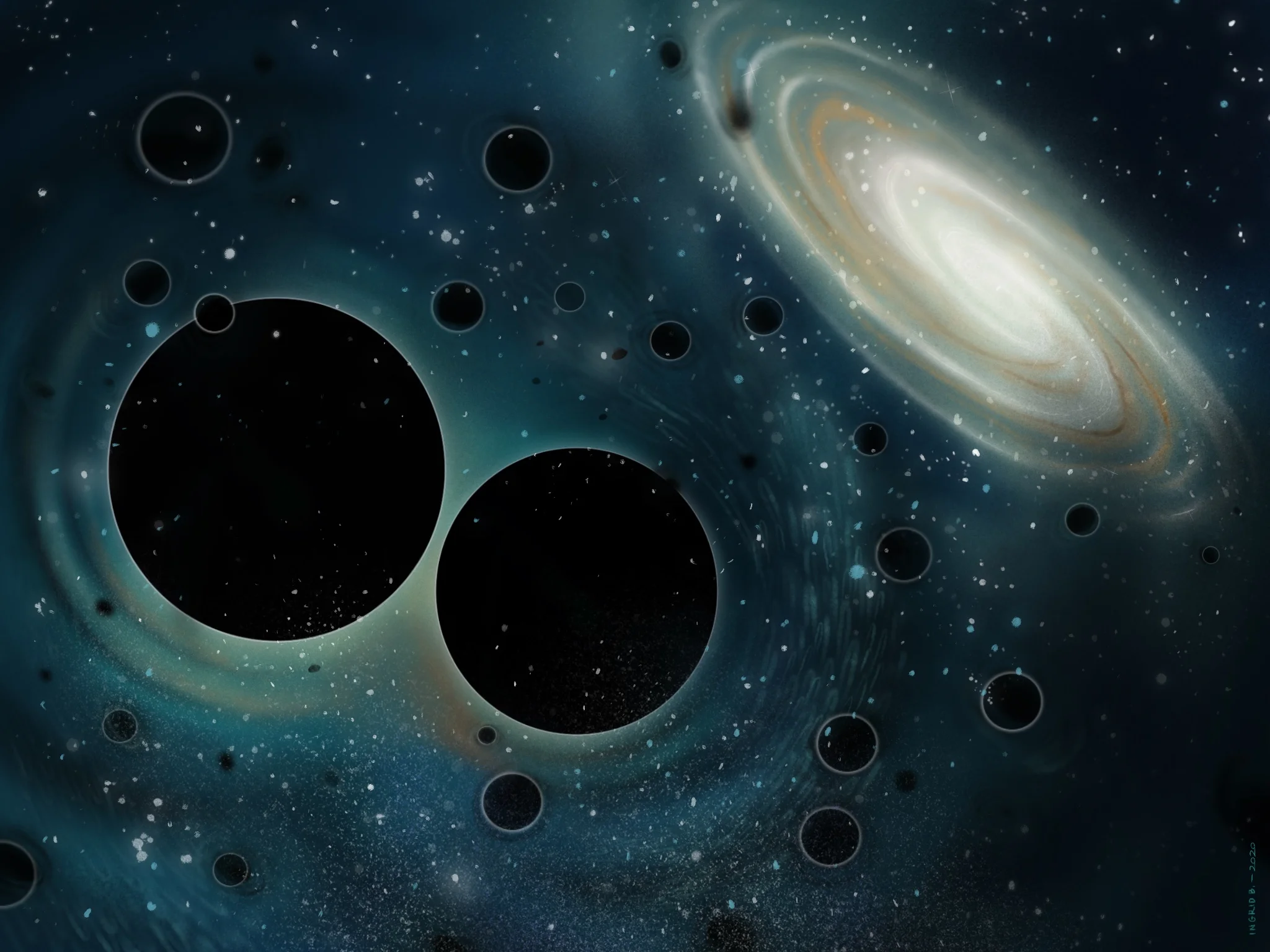Scientists from the University of Jena (Germany), the University of Turin and the National Institute of Nuclear Physics (Italy) discovered that the GW190521 black hole merger event, discovered in 2019, is an extremely rare case of the accidental collision of two blacks. holes that do not revolve around independent orbits. The results of the study are presented in a paper published in the journal Nature Astronomy.
Observations of gravitational waves emitted by systems with two compact objects (neutron stars or black holes) have shown that collisions occur when these objects spiral slowly closer together. This rotation creates a space-time fluctuation that has long been recorded by the laser interferometers of the LIGO observatory (USA) and the Virgo detector (Italy). However, on May 21, 2019, astronomers detected a short-lived gravitational wave signal from GW190521 that challenges current understanding of black hole astrophysics.
The researchers modeled gravitational wave oscillations that should come from two colliding black holes moving along hyperbolic orbits. The dynamic capture scenario that best fits the observed data suggests that black holes with masses of about 81 and 52 solar masses initially flew close together, but the mutual gravitational field pulled them back, resulting in a merger. creates a medium-weight black hole
Intermediate-mass black holes are a class of black holes with masses between 100 and 100,000 solar masses that are too large to originate from a collapsing star, but do not absorb the same amounts of matter as supermassive black holes that exist in more dormant conditions. . Its formation mechanisms are not entirely clear, but the case of GW190521 confirms that it may have arisen as a result of the merger of two stellar-mass black holes. Previous studies have shown that this black hole has a mass of about 142 solar masses, with another nine solar masses being lost due to the emission of gravitational waves.
Source: Port Altele
